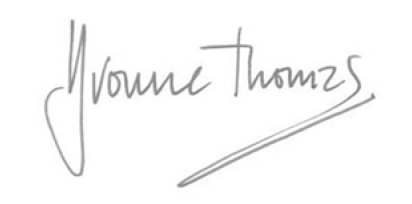Modern Slavery Statement
For the year ended 31 March 2025
Introduction to Victim Support
Victim Support is an independent charity dedicated to supporting people affected by crime and traumatic events in England and Wales. We provide specialist services to help people cope and recover and to empower them to ensure their voices are heard individually and collectively at a local and national level.
Our services help people affected by all types of crime and we provide free confidential support 24 hours a day, 365 days a year for people affected by crime and traumatic events — regardless of whether they have reported the crime to the police.
Victim Support’s charitable activities include supporting the victims of modern slavery and human trafficking under contracts let by Police and Crime Commissioners and Local Authorities in England and Wales.
This statement is made pursuant to section 54 of the Modern Slavery Act 2015. It constitutes Victim Support’s slavery and human trafficking statement for the financial year ended 31 March 2025. It covers the activities of Victim Support and its wholly-owned subsidiary Victim Support Limited.
Overarching statement
VS has a zero-tolerance approach to any form of modern slavery. We are committed to acting ethically and with integrity and transparency in all business dealings and to putting effective systems and controls in place to safeguard against any form of modern slavery taking place within the business or our supply chain.
The charity recognises the importance of its role in implementing the guidance of the Modern Slavery Act.
Organisational structure, business and supply chains
Victim Support has over 1,200 employees and more than 300 volunteers all based in England and Wales. Our employees are largely directly employed and are not in any category which is seen to be vulnerable to modern slavery in the UK. We conduct thorough background checks on employees and volunteers, including right to work checks and vetting appropriate to their role, to ensure that no one engaged by our organisation is involved in modern slavery or human trafficking.
Victim Support maintains a preferred supplier list. We conduct due diligence on all suppliers before allowing them to become a preferred supplier. Service Level Agreements and/or contracts contain clauses relating to Modern Day Slavery.
Policies relevant to modern slavery
Policies and procedures are in place to minimise the risk of modern slavery and to safeguard victims.
The safeguarding policy provides robust procedures and requirements to all employees and volunteers of Victim Support. It outlines the definition of modern slavery, types of exploitation victims endure, potential signs of modern slavery, the requirements when a concern is raised and the escalation process.
The procurement policy sets out requirements for buying goods and services and the due diligence required on suppliers. The policy includes a specific section on ensuring the risk of modern slavery in our supply chain is minimised.
The whistleblowing policy and procedure encourages employees and volunteers to report any concerns.
Due diligence processes
Due diligence is carried out on significant suppliers where there may be a modern slavery risk. This includes a requirement for up-to-date information of the level of turnover/income of applicable suppliers and where their level of turnover/income is above £36m, a review of their latest modern slavery statement is performed.
Victim Support regularly monitors other UK Government public bodies and relevant professional institutes for latest best practice guidance in terms of eradicating modern slavery. We strive to ensure that these ideas and innovations where appropriate, are adopted quickly, whenever considered applicable to Victim Support.
Assessing and managing risk
We risk assess whether there are any parts of our business and supply chains where there is a risk of slavery and human trafficking taking place. Our assessment, taking account of the nature of our business and sources of supply, is that the risk is low.
Measuring effectiveness
Our Senior Leadership Team has oversight and responsibility for the effectiveness of our measures for ensuring that modern slavery and human trafficking does not exist in any part of our business or supply chain.
Training for employees and volunteers
All employees and volunteers receive mandatory safeguarding training that covers modern slavery and human trafficking awareness.
All individuals involved in procurement are made aware of and should comply with Victim Support’s Modern Slavery Statement and understand its implications and what actions they need to take if they suspect that it is taking place within our supply chain.
Approval
This statement has been approved by the Board of Trustees of Victim Support.
Signature of Chair
Yvonne Thomas

Chair of Board of Trustees, Victim Support
